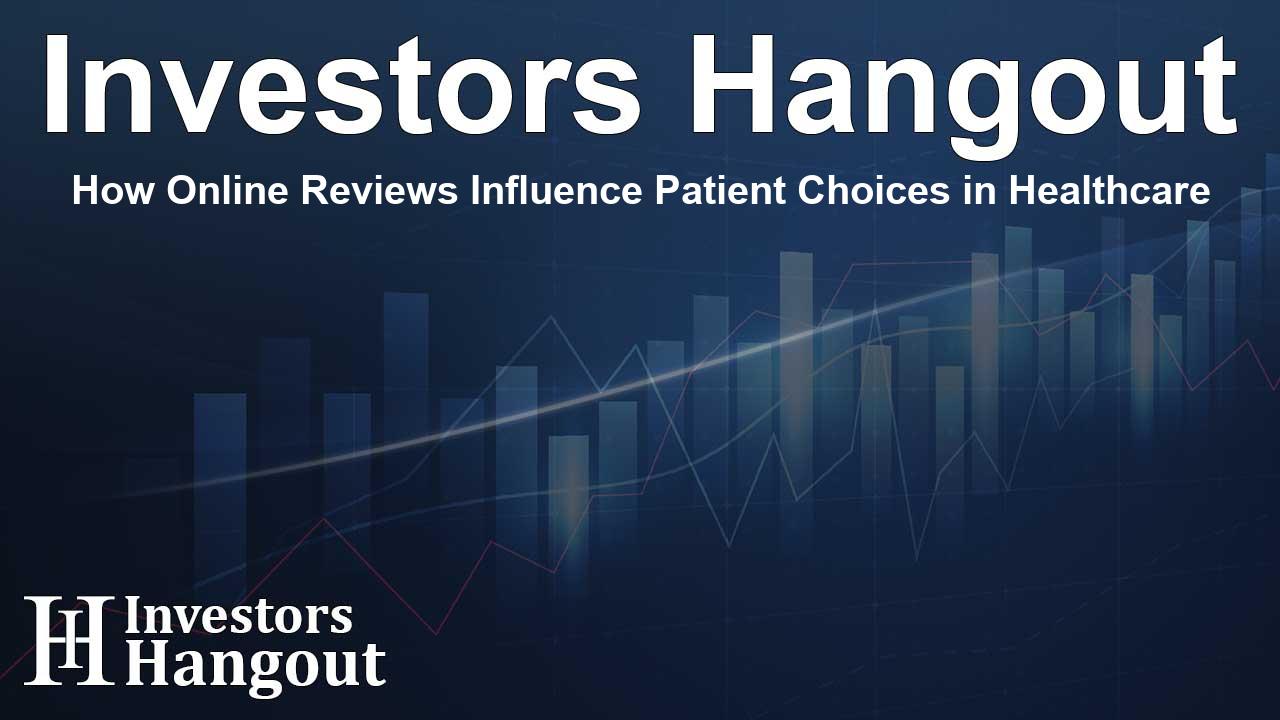How Online Reviews Influence Patient Choices in Healthcare

Online Reviews and Patient Decision-Making
In today's digital age, online reviews are becoming as essential as personal recommendations when selecting healthcare providers. According to a recent study by rater8, these reviews crucially shape patient decisions, revealing important trends and shifts in patient behavior when it comes to healthcare choices.
Survey Insights on Patient Preferences
rater8 conducted an extensive survey involving over a thousand patients aged 18 and older. The survey aimed to explore how critical online reviews are in the healthcare decision-making process. A staggering 84 percent of respondents indicated they check online reviews before choosing new healthcare providers, while more than half admitted to reading at least six reviews before making a decision. This research highlights the power of online feedback in influencing care decisions.
The Impact of Online Reviews
One of the significant findings showed that 40 percent of patients changed or canceled a care plan due to negative reviews. This statistic underlines the importance of maintaining a positive online reputation. However, during the same survey, an interesting contrast emerged: 57 percent of patients confessed that they rarely or never leave reviews for their providers. This gap indicates a significant opportunity for healthcare providers to encourage their patients to share their experiences.
Key Findings from the rater8 Study
Several noteworthy trends surfaced from the survey, helping to paint a clearer picture of patient behaviors:
- Over 26 percent of patients revealed they were contemplating changing their healthcare providers this year.
- Moreover, 61 percent of patients noted that personal recommendations would not override negative online reviews, showcasing the growing dominance of online feedback.
- Patients find it easier to switch primary care providers if dissatisfied, evidenced by 64 percent of participants indicating this preference compared to 32 percent for dermatologists and 22 percent for ophthalmologists.
- Nearly half (45 percent) mentioned that a provider's response to reviews significantly impacts their decision-making process.
- Interestingly, 26 percent stated they are less likely to leave reviews unless explicitly requested by their healthcare provider.
- Timing also plays a vital role; 47 percent said they would be most likely to write a review within a day after their visit.
Engagement with Reviews is Vital
Evan Steele, the founder and CEO of rater8, emphasized the necessity for healthcare providers to actively seek, manage, and engage with patient reviews. He articulated how the high standards patients expect from their care prompt them to change providers if their needs go unmet. Steele pointed out that even though personal recommendations still hold value in many areas, online reviews have increasingly taken precedence in healthcare decisions.
The Shifting Landscape of Patient Expectations
As the healthcare industry continues to evolve, the dynamics of patient-provider relationships become increasingly influenced by online feedback. This shift indicates a collective movement towards a more transparent and engaged patient experience. Providers who leverage positive reviews and effectively communicate with their patients can foster stronger relationships, encouraging ongoing feedback and loyalty.
Conclusion: The Future of Healthcare Reviews
In conclusion, the importance of online reviews in the healthcare sector is undeniable. As patients rely more heavily on digital feedback to inform their decisions, healthcare providers must adapt to meet these expectations. Encouraging reviews and actively responding to feedback can build trust and enhance the patient experience, ultimately resulting in more successful practices.
Frequently Asked Questions
What is the purpose of the rater8 study?
The rater8 study aims to understand how online reviews influence patient decisions when choosing healthcare providers.
How many patients participated in the rater8 survey?
Over a thousand patients aged 18 and older participated in the survey conducted by rater8.
What percentage of patients read online reviews before choosing a provider?
According to the survey, 84 percent of patients check online reviews prior to selecting new healthcare providers.
Why do patients not leave reviews for their providers?
Many patients, about 57 percent, often do not leave reviews due to a lack of encouragement or engagement from their providers.
What impact do responses to reviews have on patient decisions?
Nearly half of the surveyed patients reported that a provider's response to reviews significantly sways their decision-making process.
About The Author
Contact Ryan Hughes privately here. Or send an email with ATTN: Ryan Hughes as the subject to contact@investorshangout.com.
About Investors Hangout
Investors Hangout is a leading online stock forum for financial discussion and learning, offering a wide range of free tools and resources. It draws in traders of all levels, who exchange market knowledge, investigate trading tactics, and keep an eye on industry developments in real time. Featuring financial articles, stock message boards, quotes, charts, company profiles, and live news updates. Through cooperative learning and a wealth of informational resources, it helps users from novices creating their first portfolios to experts honing their techniques. Join Investors Hangout today: https://investorshangout.com/
The content of this article is based on factual, publicly available information and does not represent legal, financial, or investment advice. Investors Hangout does not offer financial advice, and the author is not a licensed financial advisor. Consult a qualified advisor before making any financial or investment decisions based on this article. This article should not be considered advice to purchase, sell, or hold any securities or other investments. If any of the material provided here is inaccurate, please contact us for corrections.
